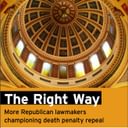By Rabbi Peter J. Rubinstein,
Senior Rabbi of Central Synagogue
Delivered at Riverside Church, January 10, 2000
Good morning. It is really humbling to be here on this pulpit in the presence of colleagues — ministers of this great church; to be with those who have devoted their lives fighting for a cause which I deem of ultimate importance; and to be with you, the members of a congregation which throughout its history has somehow always understood what needs to be done and somehow managed to get it done, and, more importantly, has been a light unto the nations, a light to the city, a light to our entire community.
It is with that knowledge that I stand humbly before you, as a religious leader of this community who has walked side by side with members of your clergy staff, but also as one who, like you, cares about the sanctity of life, about which we will talk today.
During this season in particular, we who are Jews are especially keenly aware of God’s demands as we prepare for our High Holidays. It is during this season that we learn just how demanding God can be. We are about to embark upon the celebration of our new year and on the acknowledgment of our day of atonement, Yom Kippur. These days of reflection and atonement are a time of confession. And you would think that we should be able to ask God directly for forgiveness.
Yet, God has a demand of us: that we face those we have hurt, that we look into the eyes of those we have wronged, and that we ask for their forgiveness. Only if we pass that test, only if we can stand before all those to whom we have done wrong, only then can we plead our case before the Divine throne.
“Talk to those you have wronged,” God says. “Don’t begin with a prayer to me, with a litany of your sins. Talk to me of holiness, but ask your brothers and sisters whether you have acted holy.” “Speak to me,” God says, “of how you managed not to keep the Sabbath. But speak to them about how you have stepped over them when they huddled, tired and hungry on the street.” “Talk to me,” says God, “about your prayers. But talk to them about why you haven’t educated their children. Oh, you can come and speak to me of the matters of ritual abstinence. But you had better speak to them of the huge matters of how you sent them to jail when they were not guilty, of how you stole years of their youth from them with unjustified punishment, of how you — but oh, about this you can’t speak to them anymore, because you have killed them, murdered them with heart numbing chemicals and sent electric currents through their organs.”
Today gives us the opportunity to be aware of ourselves, the civilization we are building, the world we have inherited. And it is time to give serious thought to what we have wrought.
We begin with a piece of history. Gary Graham had not been a nice guy. He was a dangerous criminal who had shot and seriously hurt two people in Houston. But other than one eyewitness who says that she saw his face for a few seconds through a car windshield from about 30 feet away, nothing nails Gary Graham to the murder of Bobby Lambert in a supermarket 19 years ago. And though the case had come before thirty judges, the two witnesses who said that Graham was not the shooter and whom the police had even listed on their report were never called to testify. In addition, there was a woefully incompetent trial lawyer, the fact that the gun Graham possessed when taken into custody was not one used in the murder, and that there was no physical evidence linking him to the crime.
This past June 22, in a statement on the floor of the United States Senate, Senator Russell Feingold, who has been a staunch advocate for abolition of the death penalty, said, “Supporters of the death penalty, including Governor Bush, have said there is no conclusive proof that Texas has killed an innocent person.” I add, as an addendum: What nerve to be so certain about anything — much less innocence or guilt or the certainty that someone has done something deserving of being murdered himself! Senator Feingold went on to say, “Apparently, Gary Graham, who had the courthouse doors slammed shut on his claim of innocence, won’t have a chance to prove that he is innocent.” That same evening, Gary Graham was strapped to the execution gurney, a needle was inserted into his arms, and poisons flowed into his veins, ending his life.
That was not the first time nor will it be the last in which the muddy waters of human and judicial judgement drown claims of innocence and bring death to those who may never have taken life.
I first confronted the noxious potential of capital punishment when I read the story some years ago of Isidore Zimmerman. He had been sentenced to death for the murder of a Police Detective upon the testimony of a man who was part of a gang that was arrested for the murder. All seven of the gang were found guilty. 5 were executed in the electric chair. One died of natural causes. 2 hours before Zimmerman was scheduled to be electrocuted, his death sentence was commuted to life in prison.
Zimmerman spent the next 24 years in New York state penitentiaries. In 1962, finding that a prosecutor in the DA’s office had deliberately used perjured testimony and had suppressed evidence that might have proven his innocence, an appeals court overturned Zimmerman’s conviction. 21 years later, the State Court of Claims awarded Zimmerman $1,000,000 for his ordeal, as though they could ever pay him for the years of suffering.
Zimmerman died four months later, having spent 24 of his 66 years in prison for a crime in which the State finally admitted he had played no part. The article about his death is what called my attention to his story. I believe that he wanted to die to show that the State could not give him back those years, not even with $1,000,000.
This example is one among others where judicial miscarriages have had horrifying outcomes. The statistics are awful. A recent study undertaken by law professor James Liebman and others at Columbia University reports that 68% of the death sentences that federal and state courts have reviewed in the past two decades have been overturned. In cases sent back for retrials, 82% of convicted capital defendants received new sentences other than death, including 7% who were found not guilty.
I believe that communities do have the right to protect themselves from crime. We have the right to take criminals off the street, especially for repeated crimes. Punishment needs to fit the crime, and we also expect in this day and age that punishment will deter crime. So, we impose fines and incarcerate because we believe that if the lawbreaker hurts enough, he or she will not break the law again.
But I am terriby concerned when our society turns to revenge and takes a criminal’s life as the punishment for wrongdoing. Albert Camus described this base instinct and reflex of ours. He said that it goes like this: “Whoever has done me harm must suffer harm; whoever has put out my eye must lose an eye; whoever has killed must die.” This is a particularly violent emotion.
Yet, we are part of an American culture that honors vengeance — especially in its choice to impose the death penalty. The execution chambers in our country are humming along. For example, just this week, Michael Scott is scheduled to be executed on Tuesday, on Wednesday, Miguel Richardson is scheduled to die in Texas and George Harris is scheduled to die in Missouri, and Derek Barnabei’s execution is planned in Virginia for Thursday.
Only China, Iran and Saudi Arabia execute more prisoners than we do. These are hardly countries we would want to emulate or to be grouped with. And we in the United States are leading the world in imposing the death penalty for juvenile convictions. We have also executed 34 people who have been diagnosed with mental illness or retardation, including some individuals who could not even read the statements they signed.
James Roach from South Carolina had an IQ below 70. He had Huntington’s Disease which was causing his brain to deteriorate. And when the State killed him in 1986, it did so for a crime convicted when he was only 17 years old.
Our State of New York doesn’t cause me to be proud either. After decades in which the death penalty did not exist here, New York in 1995 passed death penalty legislation. We inch precariously closer to reactivating executions, with 6 men already on New York’s death row. If we are not vigilant, we could be grooming our death chamber to act on our behalf.
Prior to the Governor of Illinois’imposition earlier this year of a moratorium on executions, an equal number of men there had been exonerated as had been executed since the reimposition of capital punishment there in the 1970’s. Prior to the imposition of that moratorium, an editorial had aptly commented, “The exonerations are not a sign that the system is working. The innocence of many death-row prisoners was discovered only because outsiders went to great time and expense to investigate when the courts would not.”
Only sheer luck saved the life of Walter McMillian, who was released from Alabama’s death row after having spent 6 years there on the basis of perjured testimony and withheld evidence. After listening to a tape of a key witness against McMillian, a volunteer lawyer happened to flip the tape to see if there was anything on the other side. He then heard the very same witness complain that he had been pressured to frame McMillian.
A system that requires college students to provide justice as a class project — as has happened more than once at Northwestern University — cannot be called functional. A system that holds the balance of a man’s life in the flipping of a tape cannot be called reasonable.
How many innocent people are we going to have put to death on our behalf because there is no one left to champion their cause, because their time and money has run out? We know that the death penalty is going to kill innocent men and women.
We also know that the death penalty is not an effective deterrent. A member of my congregation, Ron Tabak, has demonstrated that empirical studies disprove most of the popular arguments by proponents of the death penalty, including the proposition that it will deter crime.
And above all the death penalty is unfair and unjust. It is downright discriminatory.
When Supreme Court Justice Harry Blackmun spoke at Central Synagogue in 1993, he confided to me with a great deal of personal pain that he, in his position as a Supreme Court Justice, had come to know that more than a few innocent people have been executed in this country. Justice Blackmun early in his tenure on the Supreme Court had shamelessly voted to uphold the death penalty. But in 1994, he officially went on record reversing himself. In a dissent, he wrote:
“From this day forward, I no longer shall tinker with the machinery of death‑I feel morally and intellectually obligated simply to concede that the death penalty experiment has failed. It is virtually self-evident to me now, that no combination of procedural rules or substantive regulations ever can save the death penalty from its inherent constitutional deficiencies.”
Justice Blackmun knew and told me that capital punishment is racially discriminatory, inconsistently applied, and fraught with constitutional danger. The skin colors of the victim and the perpetrator, the accused’s financial resources or lack thereof, the location of the trial, the identity of the judge, and the expertise or lack thereof of the lawyers are all capricious matters that determine whether the accused will live or die.
But I want to leave to the lawyers those constitutional arguments and the salami approach to the law in which lawyers appropriately chip away at the laws that are sending people to their deaths.
For me, what is important is that we are sitting together in a sanctuary. In the spirit of this place, I proclaim that capital punishment is absolutely antithetical to the very foundation and principles of religious faith.
The “eye for an eye” argument that is used vociferously by death penalty proponents — some, sadly, my own colleagues * in an effort to garner support from Biblical law does not fit with what we believe. Before we use the “eye for an eye” argument to support the modern death penalty, we had better be especially cautious and had better start reading our Bible. I warn you that if we begin to literally apply the laws of the Bible — in which the death penalty is also called for those who are adulterers, those who are blasphemers, those who don’t keep the Sabbath, and those children who might be rebellious — we would decimate our society.
In the Jewish tradition, the Rabbinic authorities used textual devices to prevent the death penalty. The Rabbis interpreted the Torah using God’s aversion to murder as a basic principle. And they referred to Torah texts which explicitly forbid capital punishment.
The statute of an “eye for an eye” was interpreted to mean, at its very most, the “worth of an eye” for an eye. We have no recorded history, in Jewish tradition, of putting out eyes, of amputating hands, or of knocking out teeth. Criminals certainly needed to pay for wrongdoing, but not with the mutilation of their bodies or with their lives. The eye for an eye legislation remained conceptual and was used only in its interpreted form.
The legislation that was used and needs to be used is one of the Commandments that stands before us everyday of our lives: “You shall not murder.”
Our forebears believed that only God has the right to take life. Not you, not me.
I believe we must abolish the death penalty. We cannot become murderers.
I cannot even imagine what it would be like to send 2000 volts through three electrodes attached to the head by a tightly fitting cap and strapped to a person’s ankles. I dare not imagine the gassing of a human being or hanging a person or the loud sounds of a person’s lungs being emptied of air by lethal injection before the poison stops the heart. I do not want the State to do this on my behalf.
Taking a person’s life by plan, by calculation, in cold blood is nothing short of murder — no matter how its proponents want to make it seem different.
Capital punishment is an ignoble, irrevocable act of revenge. Once someone has been executed, you can’t go back. You can’t ask for forgiveness. You can’t say you are sorry and make it all better.
When Samuel Pisar, one of the youngest survivors of the Nazi death camps, wrote his memoirs, he recounted an occasion in which he first responded to a fellow student’s practical joke with punches and rage but then caught himself. He was mortified. “Fool,” he said to himself, “what have you done? — Have those Nazis succeeded after all? You have got to learn some self-control. You have got to lock up the hoodlum in you and throw away the key.” My friends, each of us personally — and all of us as a community * must lock up the hoodlum in us and throw away the key.
I worry about what I would do if any person harmed those whom I love. No doubt, I would want an attacker to feel pain. And let it be that murderers spend their entire lives in prison, facing the reality of their broken lives.
But we are responsible for how we punish. We are responsible for what we do. At our best, we should be punishing to educate and to improve and to redeem, and should even let out of prison those who have recreated their lives.
Isn’t that what God is asking us to do: to atone, to turn our lives around? Can’t people do that, and can’t we let them do that?
We can punish to deter, to protect. But we should not punish to take revenge. It makes us murderers. It diminishes us. It begets violence.
Revenge turns us into thugs. We have no right, no reason, to take life.
God implores us, “You shall be holy because I the Lord your God am holy.” Reaching beyond our human reflexes and grasping for divine decency is no easy matter. But, then again, struggling to be holy is probably why God put us here in the first place — here in this church, here in my synagogue, here in this creation.
Sadly, it is absolutely impossible to seek atonement from those we have put to death. They are gone! But we can enmesh expiation in our commitment to action, to remove capital punishment from the menu of judicial responses.
So let us stand up forcefully for the protection of life. Let us be warriors in defense of all life. Let us take our places in defending ourselves against forces of darkness. Let there be no blood on our hands, as there will be if someone else who acts on our behalf throws the switch or inserts the needle in the vein. Let it not be that life be taken for you or for me.
God needs us to build this world, not to destroy this world. God pleads with us to heal this world, not to harm this world.
These, my friends, are the missions before us. I pray that we will be worthy of God’s trust in our goodness. For in the end, our goodness is the tool that God has given us to help complete this creation.
Amen.



